- home

- Publication & Resources

- Blog
- Healing Wounds: 14 years after Tsunami

Healing Wounds: 14 years after Tsunami
The Indian Ocean Tsunami of 2004 hit the coasts of several Southern and South- Eastern Asian countries in December. CASA team revisits the places of intevention and its people who were helped and rehabilitated by the organisation and how have they really moved on with their lives after 14 years.
1. Housing and dignity for the Dalits
It’s been exactly 14 years after Tsunami. Rajendran has a house, a stable livelihood, could afford his son’s college education and daughter’s marriage.Now he works as a farm labourer, and on the other days he works as a boat labourer – an occupation which he could not take up due to his Dalit caste.
Housing by CASA and Norwegian Church Aid (NCA) proved to be a great boost for many Tsunami ravaged people like Rajendran who had to re-start their lives from ground zero. CASA had built houses for 15 landless-Dalit families in Vellunagar village (Koolaiyar village in Nagapattinam District), which were adjacent to the fisherfolk houses.
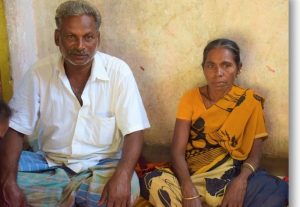
Earlier, the Dalit settlement was at least two kilometres away from about 90 families in Koolaiyar village of fishermen. CASA gave concept of ‘pucca makaan’ (brick houses) to the Dalits, who could not afford more than thatched houses previously. With concrete walls to live in, savings tendency among people came out in a different way. The money used for repairing their thatched houses every year was now being utilised for children education, re-restarting small businesses and others. The proper housing gradually became a symbol of dignity for Dalits.
Housewives and adolescent girls from this community started feeling safer in the CASA houses even when their husbands were on migration. The Dalit women were able to concentrate on their children’s education, with some successfully initiating other livelihood options like small grocery shops, goat rearing and poultry.
2. Re-settlement colonies for the fishermen
In Koolaiyar village, the fishermen community faced a greater jolt as their housing was just on the shoreline within 200 – 500 meters from the sea, leaving them exposed to Tsunami. The fishermen community had not just lost their shelter but also the mode of livelihood – boats and other fishing gear. Within hours of Tsunami, the fishing community – who were once known for their ardent spirit of fighting waves at the sea and their stable income – came to a status of nothingness.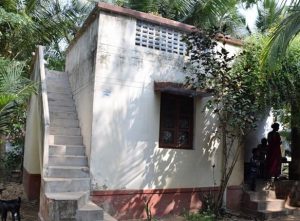
The fishermen community now fell in the most vulnerable sections. CASA built houses for the fisherfolks, Dalits and agricultural farmers. As the whole livelihood of the village was dependent on fishing and other related activities, CASA provided fishing boats, nets and other implements to the fishermen groups so that they could resume their labour again. Besides, CASA teams also conducted vocational training like boat engine mechanic training for the community.
Now 14 years after the disaster, the locals say that the new settlement built beyond the 500 metre mark from the sea, (now around in km in some cases) proved to be a “shield from cyclones and floods which have occurred in the recent past.” Some of the fishermen have brought their own boats while others are still working as labourers in groups and some go for short term assignments to Singapore.
3. From being boatless/ landless labourers to owners
L. Munishvaran (32) owns a boat which yields him a fairly good income, especially when the fishing season is at its best. Now he uses his savings on children education and other needy aspects. But this was not all rosy for Munishvaran at the time of Tsunami. Having lost his house, his savings and his livelihood as a boat labourer – it became difficult for him to cope up with the pressure.
CASA identified the neediest in the affected villages and provided boats to fishermen groups. One such boat was given to Munishvaran’s group and this was the start of his transformation – ´From a boat labourer to a boat owner’. He used the CASA boat for almost 6 years after which he purchased a boat. Now he earns “more than 50,000 a month during fishing seasons.”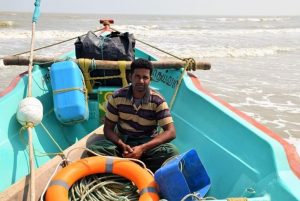
“Fishing is what we do best. CASA has helped save our traditional livelihood. If CASA wouldn’t have given fishing boat to me, then I would have continued my work as a fishing labourer and never would have owned a boat,” said Munishvaran.
Munishavaran also was actively associated with the Disaster Mitigation Task Force as a first line Leader which CASA promoted the CBDRR. Fishermen also participated in the vocational training like motor work training given by CASA in the village. Now he claims that “he can do some minor repair work in mid-sea.”
4. Bringing Back Small Businesses
During the same period of rehabilitation, CASA gave assistance to people who owned small businesses like salon shops or the landless farmers for whom their implements like elements like crowbar, spade, saw, etc, earned them their daily bread. The assistance helped them in overcoming t
heir business losses during the disaster as they could once again think about initiating their livelihood.
Velmurugan (34) had his salon shop in Koolaiyar village which was left ravaged in 2004. It was difficult to get back to his business with the overall village economy coming down in the aftermath of Tsunami.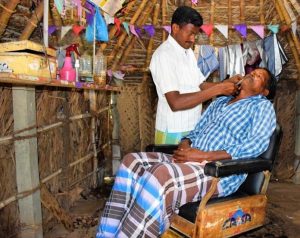
“At that time we were running to save our lives and get a safe shelter. It was pained to see that my salon implements were washed away and damaged. I remained in a state of anxiety the following days as I had no work do to in the village. CASA inquired about my losses and decided to support me at a time when I did not have the capacity to purchase anything to restart my business,” he says.
Now after 14 years, Velmurugan has built a place for himself with a hoarding on the top of his salon. The wooden chair and equipment – which CASA supported him with – encouraged him to establish a shelter though a thatched one.
 Previous Blog Post Empowering, Preparing for Future
Previous Blog Post Empowering, Preparing for Future Why CASA went ahead with Unconditional Support in Kerala?
Why CASA went ahead with Unconditional Support in Kerala?Featured Post

International Women’s Day -2021
8 Mar 2021
International Women’s Day -2021 is very special for CASA. It’s a delight to announce, CASA with the support of the Church of Sweden has launched an exclusive Gender Desk to emphasise the importance of Gender Justice work. CASA has been working for Gender Justice all throughout and across our constituencies in all these years. Gender Desk comes to add vigour […]

Overcoming Gender and Poverty Barriers
Poverty has been an inevitable problem in India since the beginning of time. The increasing problems of poverty caused by overpopulation and the unequal distribution of wealth among the people have led to a huge impact on the life of millions in the rural as well as the urban area. A person has to acquire […]
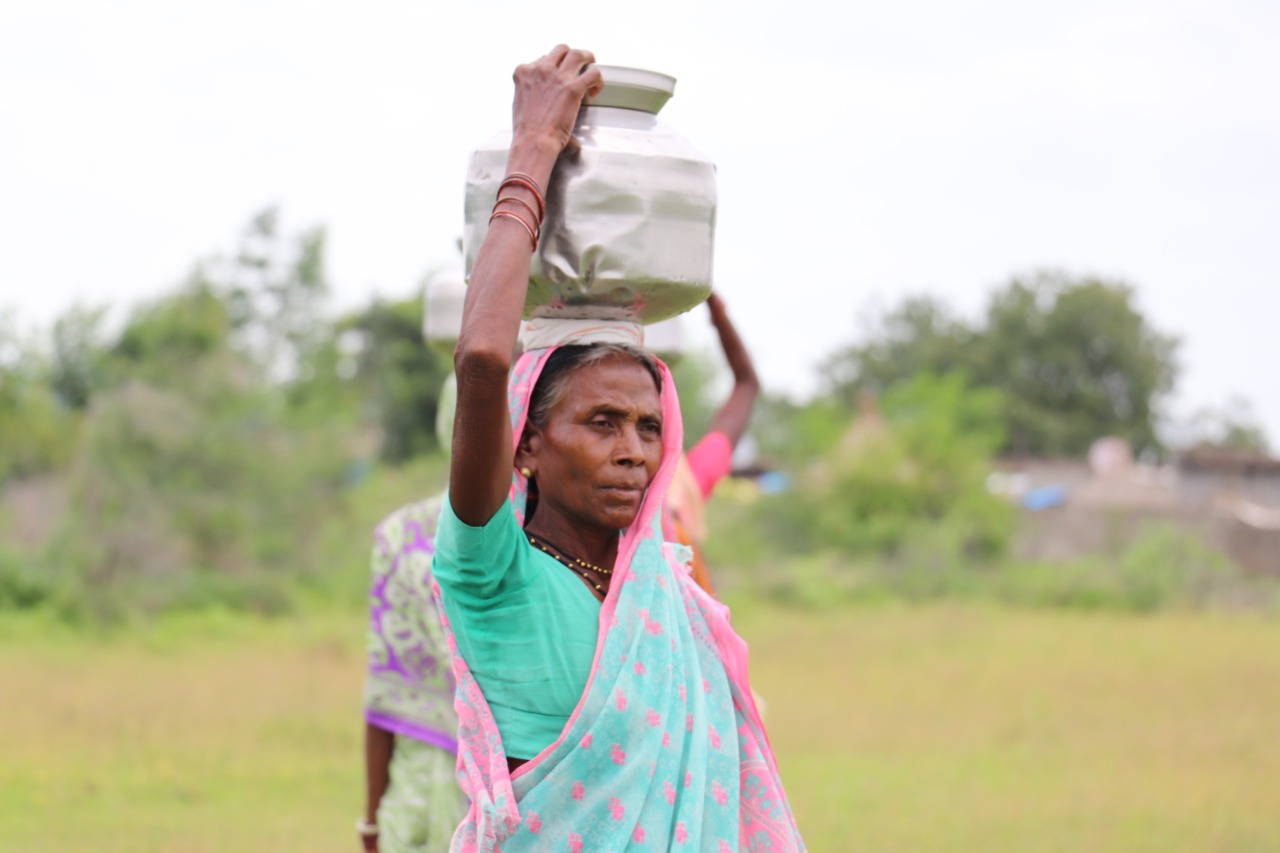
Impact of Climate Change on Women
16 Jan 2021
Climate change is a prevailing problem globally whose hazardous repercussions extend beyond the environment. Shrinking glaciers, extinction of plants and animal species, mutation, rise in the Earth’s average temperature and triggered seasonal fluctuations, are some of the impacts of climate change that have already grabbed the headline. Certain early predictions pertaining to climate changes had […]



